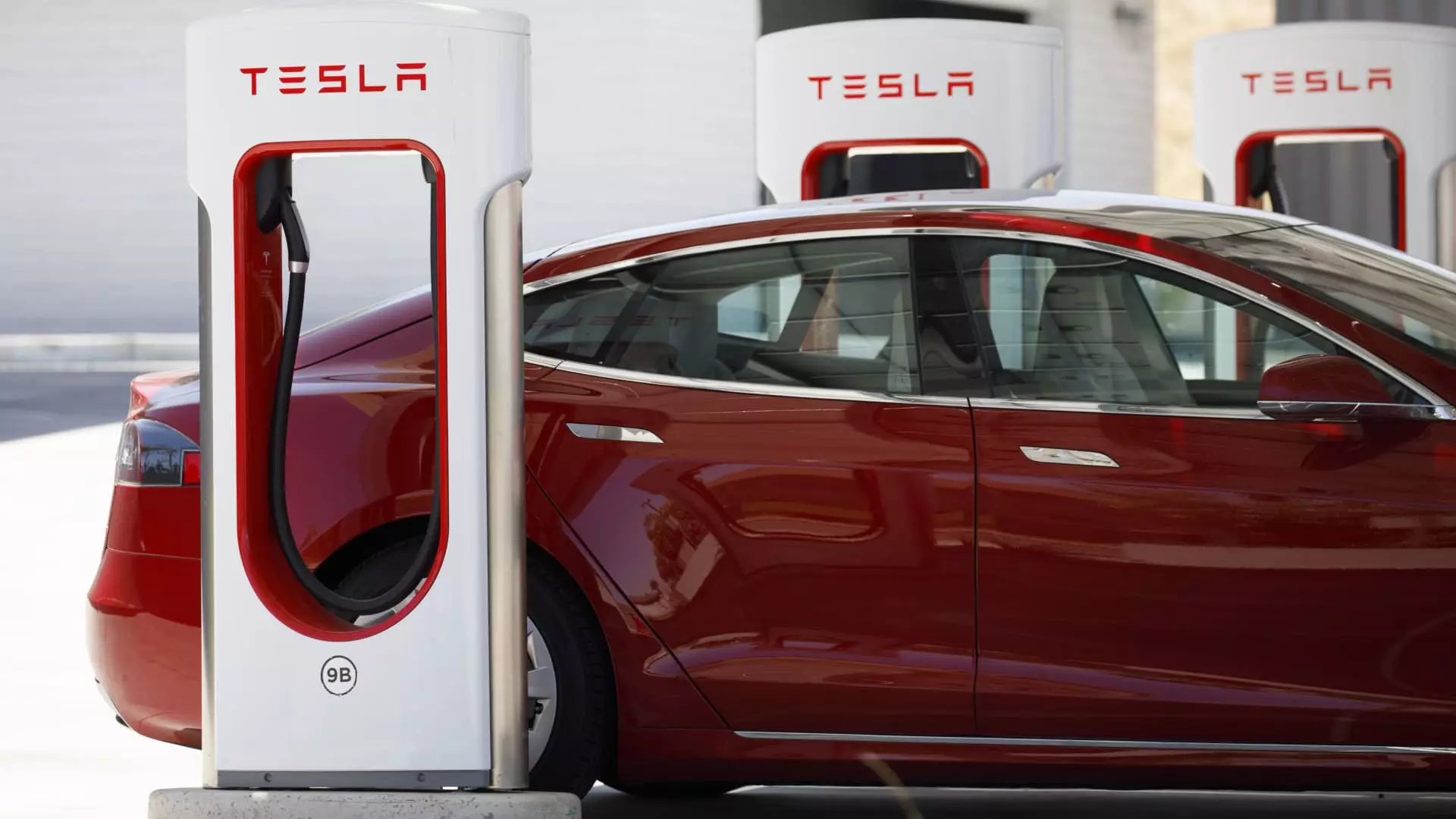Shares of electric vehicle (EV) makers and Tesla’s Asia suppliers have taken a hit after the EV giant missed its fourth-quarter revenue and profit targets and warned of slower sales this year. This article examines the implications of Tesla’s disappointing results on the wider EV industry and the subsequent decline in stock prices of related companies.
Tesla’s announcement has had a ripple effect on its suppliers. LG Display, a South Korean manufacturer known for supplying car displays for Tesla’s Model 3, experienced a decline of over 4% in its stock price. Battery suppliers LG Energy Solution, Samsung SDI, and Panasonic Holdings also saw declines, with drops ranging from 2% to 3.8%.
Tesla’s rivals in Asia also suffered from the implications of its disappointing results. BYD, which surpassed Tesla as the world’s top-selling EV maker in the fourth quarter of 2023, fell around 2%. While Tesla reported sales figures of approximately 484,000 vehicles for the quarter, BYD outperformed with sales of around 526,000 vehicles. However, Tesla remained the annual leader, delivering more than 1.8 million vehicles in 2023, compared to BYD’s figure of under 1.6 million. Other major EV players in Asia, including Nio, Xpeng, and Li Auto, experienced significant losses on the Hang Seng index. Nio plummeted over 7%, followed by Xpeng with a 6.05% drop, and Li Auto with a 4.47% decrease.
As a bellwether for the EV industry, Tesla’s production outlook plays a critical role in investor sentiment. During an investor presentation, Tesla mentioned that vehicle volume growth in 2024 might be significantly lower than the growth rate observed last year. This cautious projection is due to the company’s focus on launching its “next-generation vehicle” in Texas. Tesla’s downbeat outlook has not only impacted its suppliers but also triggered a decline in other Asian EV manufacturers’ stock prices.
While Tesla showed a modest 3% increase in revenue for the fourth quarter, reaching $25.17 billion, it fell short of the $25.6 billion expected by LSEG. Similarly, its earnings per share landed at 71 cents, missing the estimated 74 cents by LSEG. However, it is worth noting that Tesla’s net income for the quarter more than doubled to $7.9 billion (or $2.27 per share), largely due to a one-time noncash tax benefit of $5.9 billion. This figure represents a significant increase from the $3.7 billion (or $1.07 per share) recorded in the same period the previous year.
Tesla’s disappointing results have reverberated throughout the EV industry, causing a decline in stock prices for both Tesla’s suppliers and its competitors. The cautious production outlook for 2024 has added to investor concerns, leading to further sell-offs. However, it is important to remember that Tesla’s dominance in the EV market remains largely unchallenged, as demonstrated by its annual sales figures. As the industry continues to evolve, it will be interesting to see how Tesla adapts and navigates the changing landscape of electric vehicles.


Leave a Reply